Audiobooks
MARS HILL AUDIO Audiobooks are full-length audio readings of valuable books that discuss in depth some of the cultural areas where the need is most evident to re-discover what it is to be human and to flourish in community.
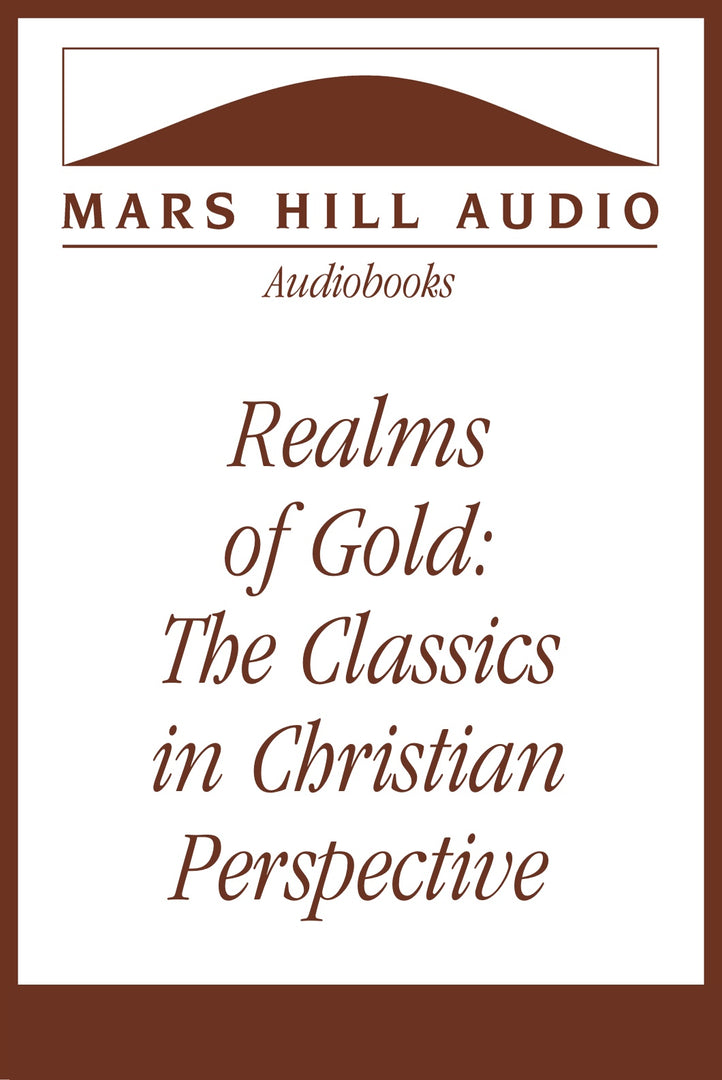
Throughout history, great literature has been a cohesive force in Western culture. It interprets our experiences and tells us the truth about our fears and longings. It is a catalyst to our thinking and an invaluable index to the minds and feelings of people around us. In Realms of Gold, Leland Ryken proceeds chronologically through some of his most favorite classics, from Homer to Shakespeare and Milton to Tolstoy and Camus, offering not only a taste of the classics, but a framework in which to analyze them. For students studying literature, this book serves as an introduction to the classics as friends; for those who read the classics a long time ago, it is a motivation to renew delightful acquaintances; and for people already intimate with these works, it offers the opportunity to deepen their understanding within a Christian context.
Read by Ken Myers. 8 hours 30 minutes. $18.
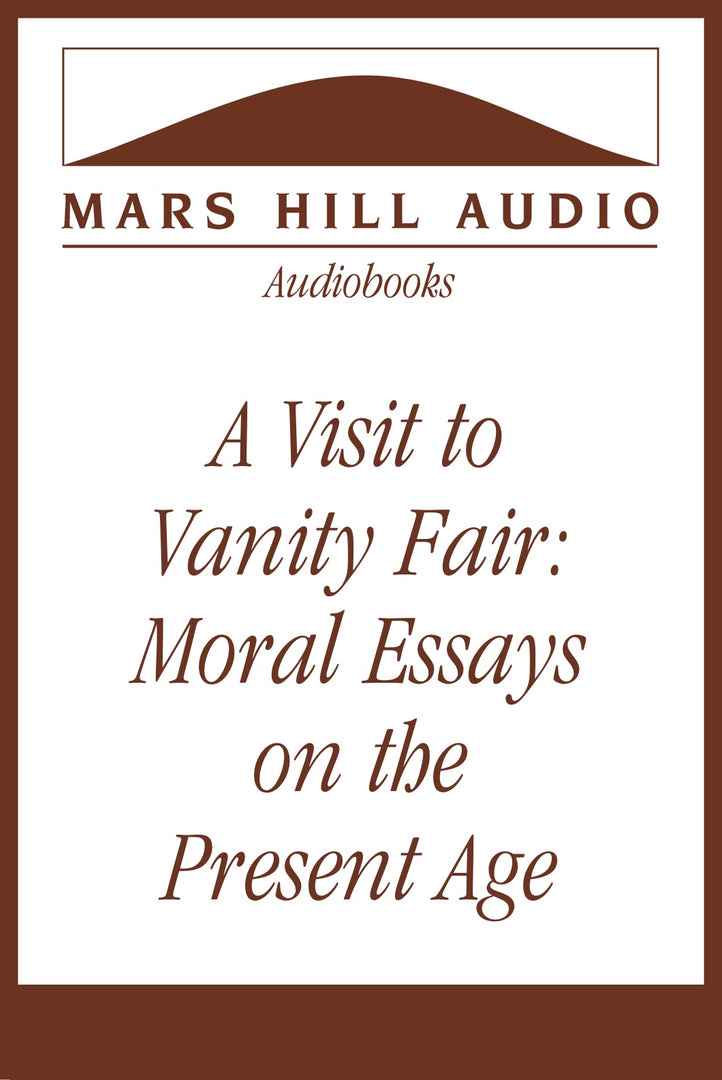
Alan Jacobs, literary critic and professor of humanities at Baylor University, has been a regular guest on the MARS HILL AUDIO Journal since 1993, discussing subjects ranging from the problem of literary sentimentalism (as in The Bridges of Madison County), and the delights of historical fiction (as in seafaring narratives of Patrick O’Brian) to the repulsive attraction of the vampire novels of Anne Rice. In his most recent book, A Visit to Vanity Fair: Moral Essays on the Present Age, Jacobs displays a similar range of breadth and depth, as well as significant portions of wit and grace. Included are essays on the mystery of true friendship (“Friendship and Its Discontents”), the severing of theology and literature (“Preachers without Poetry”), and the desire to know the future (“Dowsing in Scripture”).
Read by the author. 5 hours, 30 minutes. $15
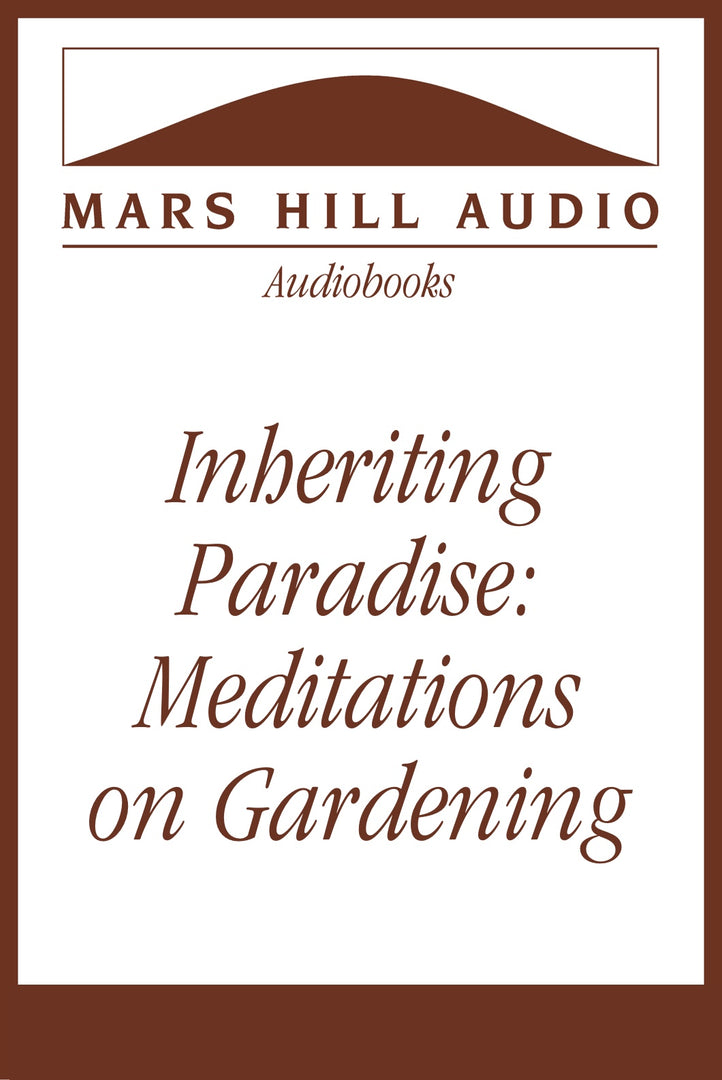
The garden is a personal place of retreat and delight and labor for many people. Gardening helps us collect ourselves, much as praying does. For rich and poor — it makes no difference — a garden is a place where body and soul are in harmony. In Inheriting Paradise, Vigen Guroian offers an abundant vision of the spiritual life found in the cultivation of God's good creation. Capturing the earthiness and sacramental character of the Christian faith, these uplifting meditations bring together the experience of space and time through the cycle of the seasons in the garden and relate this fundamental experience to the cycle of the church year and the Christian seasons of grace. The tilling of the fresh earth; the sowing of seeds; the harvesting of rhubarb and roses, dillweed and daffodils — Guroian finds in the garden our most concrete connection with life and God's gracious giving. His personal reflections on this connection offer a compelling entry into Christian spirituality.
Read by the author. 2 hours. $15.
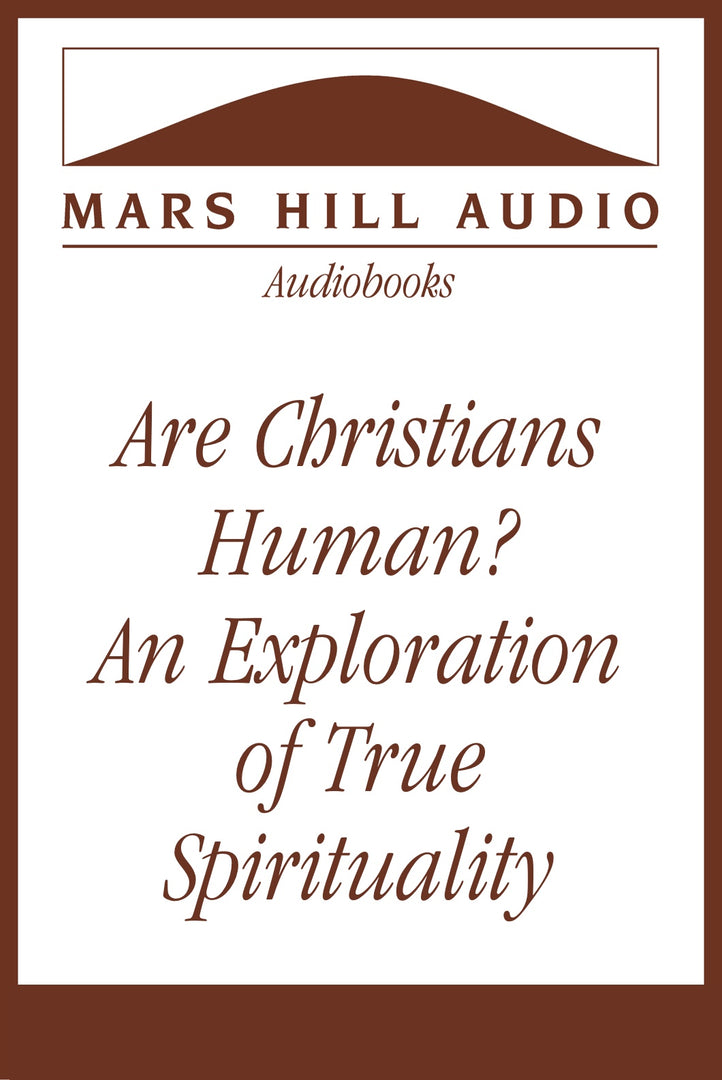
Is humanity — the quality of being human — a blessing or a curse? Do we simply put up with it, or do we embrace it? Many Christians consider their purpose in life to deny or escape their humanity. But the humanity of Christians is tied up in the humanity of Christ. If Jesus Christ is human, then his humanity is something to be learned and lived. Many Christians, however, do not believe in the humanity of Jesus and consequently find it hard to affirm and live out their own humanity. As Nigel Cameron points out in Are Christians Human? An Exploration of True Spirituality (Zondervan, 1990), being human as Jesus Christ is human has profound implications for daily living. It means living as embodied creatures, using the gifts of perception and intellect, feeling and responding emotionally to life, using one's discernment and will to chart a course in keeping with God's leading. “The purpose of redemption,” Cameron reminds us, “is to enable man to be once more himself, restored to his right mind and his right place as a creature under God. . . . The Christian life is the life of man, male and female, made in the image of God and after his likeness. To deny this humanity and attempt to reach beyond to a ‘spirituality’ which somehow contradicts it, is to fall prey once more to the tempter in his shining, specious livery, who as an angel of light beckons us to reach beyond the confines of our human existence to a place where in fact we deny it and fall from its dignity.”
Read by Ken Myers. 4 hours. $15.
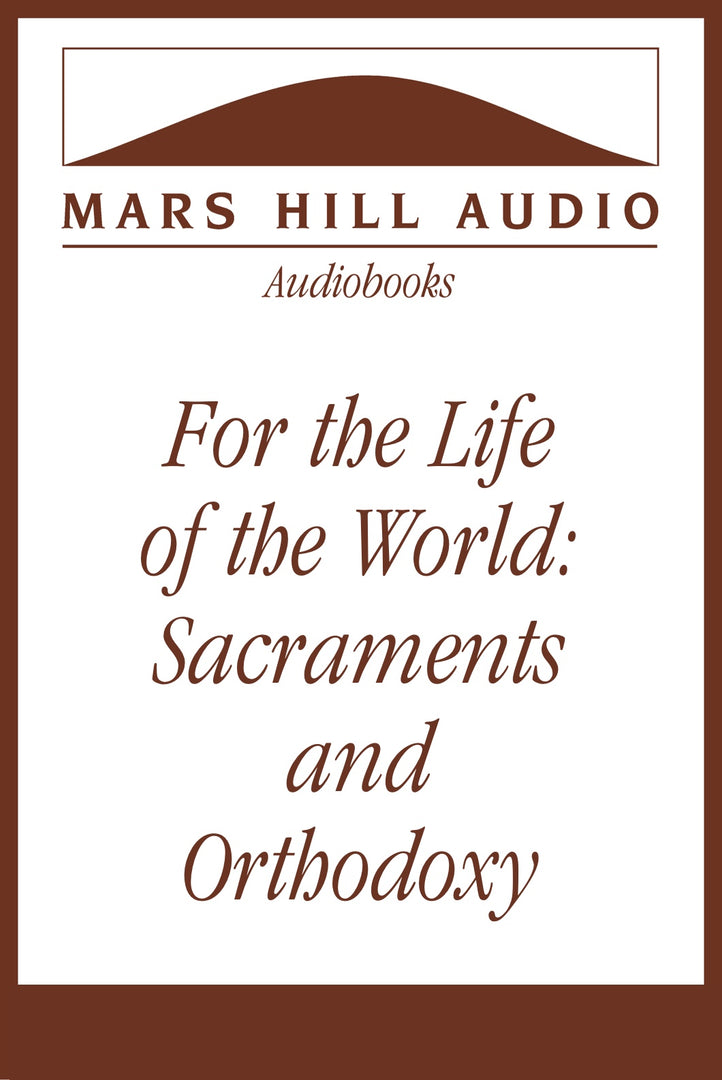
MARS HILL AUDIO presents the first available audiobook of Fr. Alexander Schmemann’s classic work on theology and liturgy, For the Life of the World: Sacraments and Orthodoxy. Fr. Schmemann begins his essay into the sacraments of the Church with the observation that man is a hungry being and that the world is presented to him as his food. Man must eat in order to have life. From this observation, Fr. Schmemann follows with the question: “Of what life do we speak, what life do we preach, proclaim, and announce when, as Christians, we confess that Christ died for the life of the world? What life is both the motivation, and the beginning and goal of Christian mission?”
Throughout the book, Fr. Schmemann confronts challenges of clericalism and secularism and identifies subtle dualities between the spiritual and the religious, the active and contemplative, Word and sacrament, and finally sacrament and liturgy. As he walks through the Church’s life by way of the sacraments, Fr. Schmemann offers an account of the sacraments and their liturgies that reunites through Christ the eschatological and worshiping life of the Church with the cosmos and time that is its mission.
This recording is read by Ken Myers from the newly revised 2018 edition published by St. Vladimir’s Seminary Press. 5 hours 48 minutes. $15
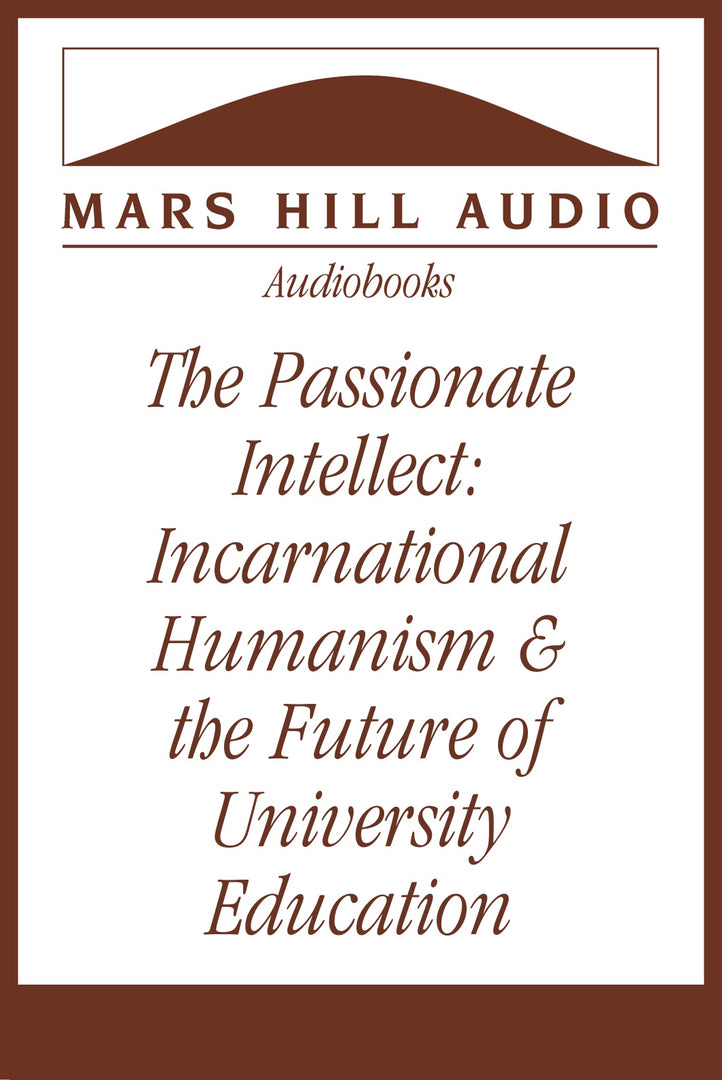
In this book, Norman Klassen and Jens Zimmermann trace the history of higher education from its medieval roots to the present, focusing on how educational agendas have been assembled in light of shifting understandings of the nature of knowledge and the nature of human well-being. They demonstrate that some form of humanism has always been central to the purposes of higher education, and insist that the recovery of a rich, Christocentric Christian humanism is the only way for the university to recover a coherent purpose.
Read by Ken Myers. 6 hours 30 minutes. $15.
Since 1993, the Mars Hill Audio Journal has provided thoughtful interviews and commentary to thousands of listeners.
Now you can sign up for a membership and listen to almost everything we’ve produced for over 30 years, as well as many hours of content from Partner organizations.
